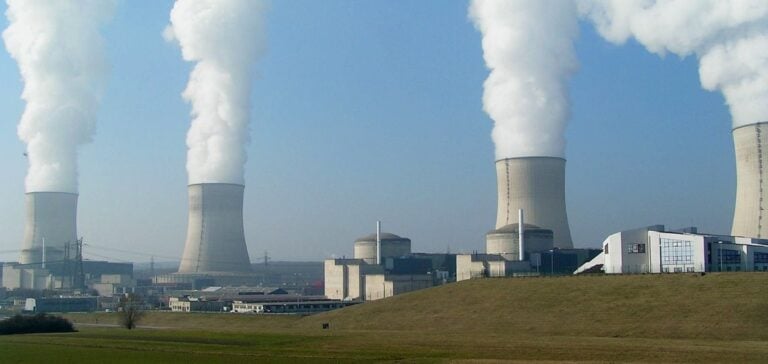Serbia is examining the possibility of reintegrating nuclear power into its energy mix.
Currently, around 70% of its electricity comes from coal, making Belgrade one of the most polluted cities in Europe.
The government, led by President Aleksandar Vucic, sees nuclear power as a way of diversifying its energy sources and reducing the risk of long-term dependence.
At the end of August, a Declaration of Intent was signed with France to cooperate in the field of nuclear energy, paving the way for further negotiations.
This initiative was accompanied by public consultations on a possible change in energy legislation, which would include lifting the 1989 moratorium on civil nuclear power.
Exploring this option, however, is provoking intense public debate.
A poll by the New Third Way think tank shows that opinions are divided: a third of those questioned are opposed to nuclear power, a third are in favor, and a third remain undecided.
However, the majority agree on the need to gradually reduce the share of coal in the country’s electricity production.
Complex strategic and regulatory challenges
Serbia ‘s potential return to nuclear power raises important strategic questions.
The signing of the cooperation agreement with France represents a first step, but the road to building a power plant is a long one.
It would take almost two decades to complete such a project, according to current projections.
This includes feasibility studies, securing financing and obtaining the necessary licenses.
In addition, the issue of radioactive waste management remains a major hurdle to overcome.
Slobodan Bubnjevic, from the Institute of Physics at the University of Belgrade, points out that involvement in nuclear power imposes long-term responsibilities, particularly with regard to waste management and the dismantling of end-of-life facilities.
The costs associated with these processes are not negligible, and must be factored into the profitability calculations of future projects.
This is particularly relevant in the Serbian context, where financial resources and institutional capacity to manage such operations are limited.
Economic Challenges and Opportunities for International Cooperation
Serbia finds itself in a unique position: surrounded by countries such as Hungary, Romania and Bulgaria, which already operate nuclear power plants.
The Director of Serbia’s Nuclear Facilities (NFS), Dalibor Arbutina, points out that Serbia shares the same risks as its neighbors, but without the benefit of nuclear power.
This situation is prompting the government to consider options to avoid being left behind in the region, particularly in the face of ever-increasing energy needs.
President Vucic emphasizes the need to prepare the country for the growth in electricity demand, exacerbated by factors such as the rise of electric vehicles and the adoption of new energy-intensive technologies.
Nuclear power is presented as a pragmatic solution, even if it implies substantial investment and a restructuring of national energy policy.
International cooperation, particularly with France, is seen as a means of accelerating this process, while drawing on existing expertise in the sector.
Prospects and considerations for Serbia’s energy sector The possibility of a return to nuclear power in Serbia is still uncertain and the subject of much debate.
The authorities have to reconcile divergent interests, between distrustful public opinion and the economic and strategic imperatives of the energy transition.
Ongoing consultations and cooperation agreements could provide a favorable framework, but the challenges of implementation are numerous.
The outcome of this reflection could redefine Serbia’s position on the region’s energy map, influencing its economic and political relations with its neighbors and international partners.






















